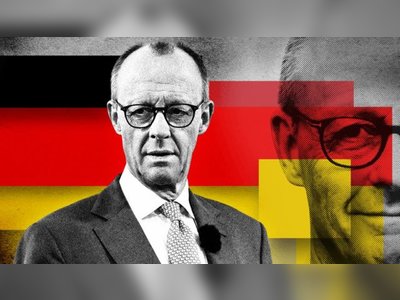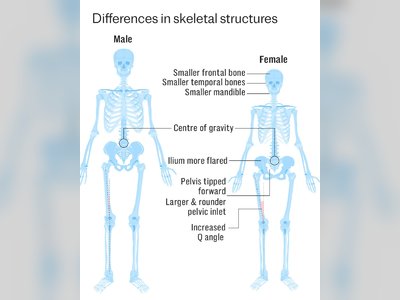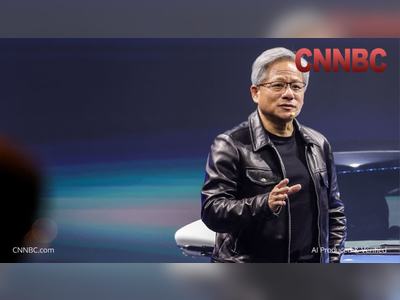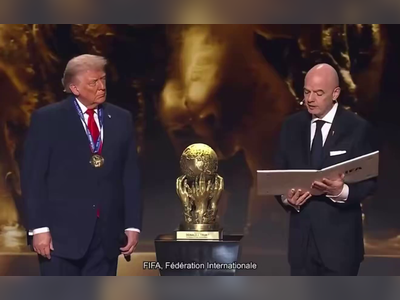Trump Praises Viktor Orbán as US Grants Hungary Sanctions Relief for Russian Energy Imports
White House meeting sees alliance over immigration and energy-strategy as formality; Washington gives Budapest a one-year exemption from US sanctions on Russian oil and gas
President Donald Trump welcomed Hungarian Prime Minister Viktor Orbán at the White House on Friday and repeatedly hailed him as a “great leader”, as the two discussed trade, immigration, and Russia’s war in Ukraine.
The hour-long bilateral lunch in the Cabinet Room culminated in Washington agreeing to grant Hungary a one-year exemption from upcoming US sanctions on Russian oil and gas imports—a major concession to Budapest’s energy-dependent economy.
The exemption allows Hungary to continue purchasing crude oil and pipeline gas from Russia, despite the sanctions regime on Russia’s state-controlled oil firms such as Rosneft and Lukoil.
In exchange, Hungary committed to buying roughly US$600 million of US-liquefied natural gas and increasing nuclear-fuel cooperation—steps intended to offset criticisms of Hungary’s strong reliance on Moscow.
Trump underlined Hungary’s geographic constraints—“They don’t have sea.
They don’t have the ports.
And so they have a difficult problem”—and said he was “looking at” granting the exemption.
Orbán called the outcome “vital” for his country and hailed what he described as a “golden age” in US–Hungarian relations under Trump.
The meeting also touched on the potential revival of a summit between Trump and Russian President Vladimir Putin—in Budapest—though Trump said such a meeting would proceed only if substantive progress can be secured.
On Ukraine, Orbán told Trump that a Ukrainian military victory would require “a miracle”—a remark that Trump echoed, asking, “So you would say that Ukraine cannot win that war?” to which Orbán replied, “You know, a miracle can happen.” Their comments reflect a shared shift toward emphasising diplomacy and peace talks rather than further sanctions or military escalation.
The US–Hungary agreement marks a diplomatic pivot from the European Union’s plan to end Russian-energy imports by 2027 and raises questions about the coherence of the allied transatlantic energy strategy.
At the same time, the public show of support between Trump and Orbán sends a clear message of alignment on border control, immigration policy, and geopolitical realignment.
As the administration pursues its broader aim of reshaping global energy politics and securing strategic partnerships, the Hungary deal stands out as a tangible victory during Hungary’s prime ministerial visit to Washington.
The hour-long bilateral lunch in the Cabinet Room culminated in Washington agreeing to grant Hungary a one-year exemption from upcoming US sanctions on Russian oil and gas imports—a major concession to Budapest’s energy-dependent economy.
The exemption allows Hungary to continue purchasing crude oil and pipeline gas from Russia, despite the sanctions regime on Russia’s state-controlled oil firms such as Rosneft and Lukoil.
In exchange, Hungary committed to buying roughly US$600 million of US-liquefied natural gas and increasing nuclear-fuel cooperation—steps intended to offset criticisms of Hungary’s strong reliance on Moscow.
Trump underlined Hungary’s geographic constraints—“They don’t have sea.
They don’t have the ports.
And so they have a difficult problem”—and said he was “looking at” granting the exemption.
Orbán called the outcome “vital” for his country and hailed what he described as a “golden age” in US–Hungarian relations under Trump.
The meeting also touched on the potential revival of a summit between Trump and Russian President Vladimir Putin—in Budapest—though Trump said such a meeting would proceed only if substantive progress can be secured.
On Ukraine, Orbán told Trump that a Ukrainian military victory would require “a miracle”—a remark that Trump echoed, asking, “So you would say that Ukraine cannot win that war?” to which Orbán replied, “You know, a miracle can happen.” Their comments reflect a shared shift toward emphasising diplomacy and peace talks rather than further sanctions or military escalation.
The US–Hungary agreement marks a diplomatic pivot from the European Union’s plan to end Russian-energy imports by 2027 and raises questions about the coherence of the allied transatlantic energy strategy.
At the same time, the public show of support between Trump and Orbán sends a clear message of alignment on border control, immigration policy, and geopolitical realignment.
As the administration pursues its broader aim of reshaping global energy politics and securing strategic partnerships, the Hungary deal stands out as a tangible victory during Hungary’s prime ministerial visit to Washington.












